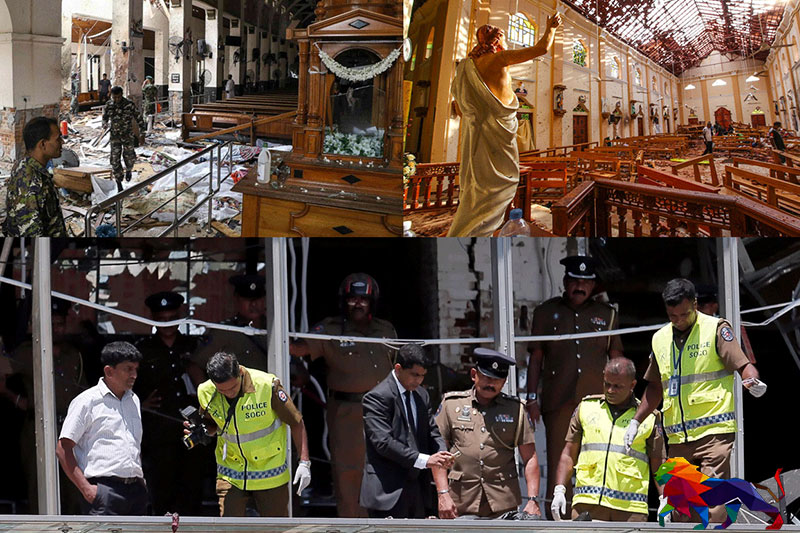A Sri Lankan Roman Catholic leader has said the government must win back the confidence of the church before the two sides can hold talks on the church’s criticisms of inquiries into 2019 Easter Sunday bomb blasts that killed 269 people.
Archbishop of Colombo Cardinal Malcolm Ranjith made the comment in response to a letter from Foreign Minister Gamini Lakshman Peiris seeking a meeting, his spokesman, the Reverend Cyril Gamini Fernando, said on Wednesday.
Ranjith said the authorities must hold a transparent investigation and implement the recommendations of a presidential commission before any talks can begin, Fernando said.
“If the government begins a credible investigation and starts implementing the recommendations, their credibility will increase. It is only the government which is able to build that confidence,” Fernando said in a statement.
The foreign ministry on Wednesday said the Vatican’s ambassador to Sri Lanka, Archbishop Brian Udaigwe, had agreed in a meeting with Peiris to arrange talks with the bishops.
Six near-simultaneous suicide blasts at three churches and three tourist hotels on Easter Sunday, April 21, 2019, killed 269 people. A man left a fourth hotel without setting off his bomb but later killed himself by detonating his explosives at a different location.
Among those killed were worshippers at Easter services and tourists having breakfast at their hotels. Two local Muslim groups that had pledged allegiance to the ISIL (ISIS) group were blamed for the attacks.
Ranjith wrote to President Gotabaya Rajapaksa in July complaining that the government had not taken legal action against former President Maithripala Sirisena and several police and intelligence officials for alleged negligence as recommended by the commission.
The government said last month that it has filed 23,270 charges against 25 people in connection with the attacks, but it did not include Sirisena or others named by the commission.
A rift and communication breakdown between Sirisena and then Prime Minister Ranil Wickremesinghe was said to be the reason why officials did not act on near-specific intelligence warnings ahead of the attacks. That led to the election of Rajapaksa as president later that year on a national security platform.
The church said it believes those prosecuted are “smaller fish” and that there is a bigger conspiracy beyond religious extremism.
Ranjith in his letter asked the authorities to investigate alleged links between state intelligence officials and the attackers. He cited speeches in parliament as alleging that members of state intelligence knew and met with the man who did not initially detonate his bomb.
He said the speeches also alleged that intelligence members had a suspect released by police and contacted an intermediary to persuade ISIL to claim responsibility for the bombings.
ISIL later claimed responsibility after a video was released showing the attackers dressed in black and pledging allegiance to the group.
Source:Aljazeera


